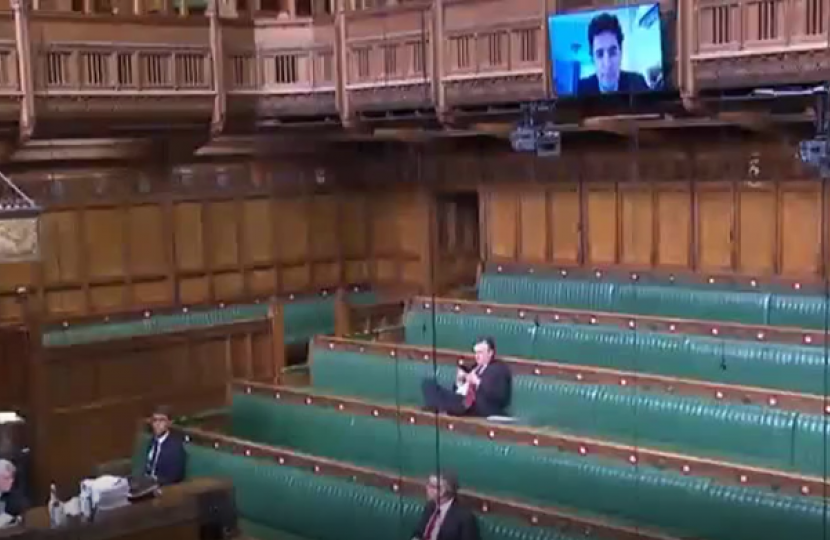
I spoke during the General Covid debate yesterday in Parliament. I focused on the transportation and particularly aviation which has been badly impacted, especially for cabin crew and staff at British Airways. With furlough extended, BA must put redundancy and restructuring back in the hold where it belongs.
I also highlighted the frustrating delay in getting the Bexhill testing centre plugged in centrally, an issue which I am continuing to press the DHSC on.
Watch or read my speech below:
Huw Merriman (Bexhill and Battle)
It is a pleasure to speak in this debate and to see you looking resplendent in the Chair, Madam Deputy Speaker.
I wish to take the opportunity to thank all my constituents, who have done the most amazing job rallying around and looking after each other—that is what makes my part of the East Sussex coast so special. I also wish to recognise and thank the Government for the support that they have given and the lead they have taken in these difficult times.
As MPs from all parties will be aware, we face day-to-day challenges. For the past few weeks, my daily challenge has been to try to get our Bexhill testing centre plugged into the central link. We have a frustrating situation whereby we have a testing centre, but it is not plugged in. If anyone from Deloitte is following proceedings, I ask them to plug our local centre in to the national link so that local people can use their local testing centre.
In my few remaining minutes I wish to focus on the Transport Committee’s inquiry on coronavirus and the implications for the transport sector. We have been looking at the aviation sector, which is clearly on its knees right now and needs our assistance. I note the Government support and welcome it, but recent days have seen us looking towards quarantine. My question to the Government is why now? If it is required from a health perspective, why was it not introduced at the start of lockdown? If it is required now, what help will there be for the aviation sector so that it can pick up? It is important not just for jobs and travel, but for our imports and exports. Some 40% of all imports arrive in the belly of airliners arriving at Heathrow, and it is important that we support them.
The aviation sector itself needs to do more to support its staff. Yesterday, the chief executive of British Airways’ parent group, Willie Walsh, appeared before the Select Committee. Almost a third of BA staff are facing redundancy, and those who remain have been told that their terms and conditions will be lowered and altered. Some of those terms and conditions have nothing to do with costs—for example, they may relate to grievance procedures. It feels as if BA is using this as an opportunity to undertake long-held reforms of terms and conditions. I asked the chief executive whether he would be willing to allow those employees to share the proceeds of growth if things return back to normal times, but he refused to give that assurance. Thousands of BA staff have contacted me and other members of the Select Committee. They are clearly the best of employees—they care about their carrier and they care about each other— and I hope that BA will use the welcome extension of furlough to put the redundancy plans back in the hold, where they deserve to be.
I also want to talk briefly about Gatwick, my local airport. It is—or has been—the busiest single runway airport, handling 46 million passengers each year. It is an important national asset, and I really hope that it will survive.
The next Committee session for us will be on buses and trains. We are very concerned about the worker situation. There are 9.9 coronavirus deaths per 100,000 UK males, yet in the bus sector the figure is 26.4 deaths. Clearly, more needs to be done to protect those workers. I support the measures that the Government have brought in today regarding passengers using their own PPE, although I note that, in France, PPE is being handed out on a more professional basis by workers. In Germany, the transport system is back operating as normal because it recognises that social-distancing just does not work in practice. As we move out of lockdown, I hope that we can be more flexible so that we protect our economy and our transport sector.



